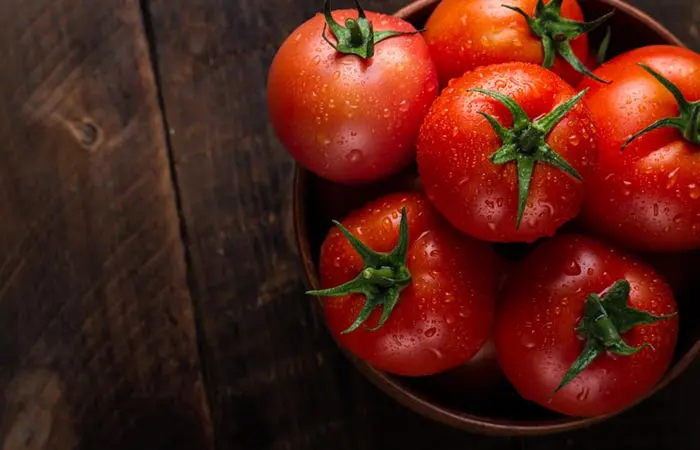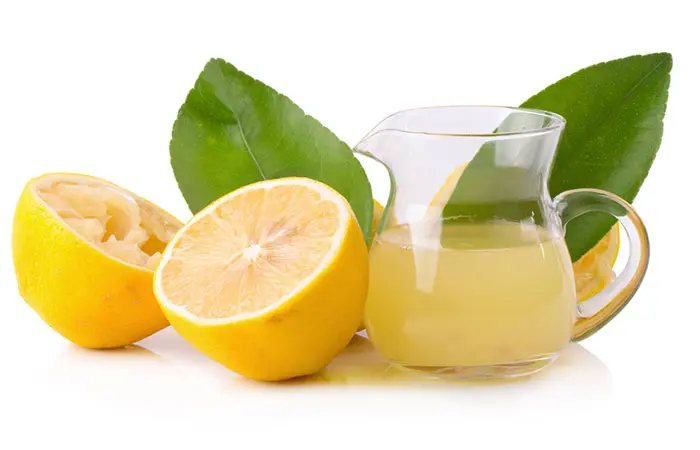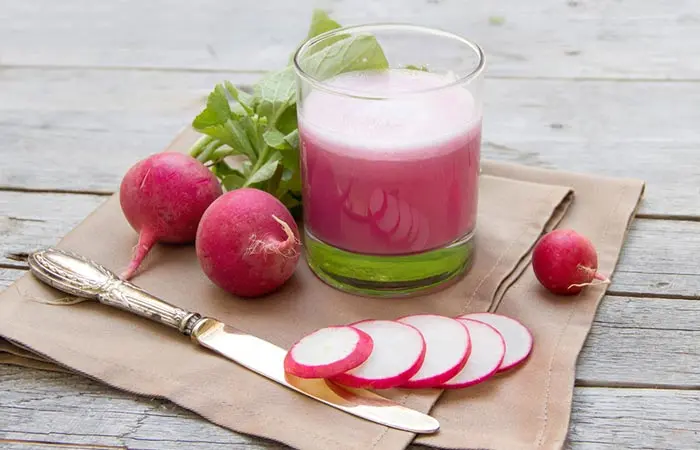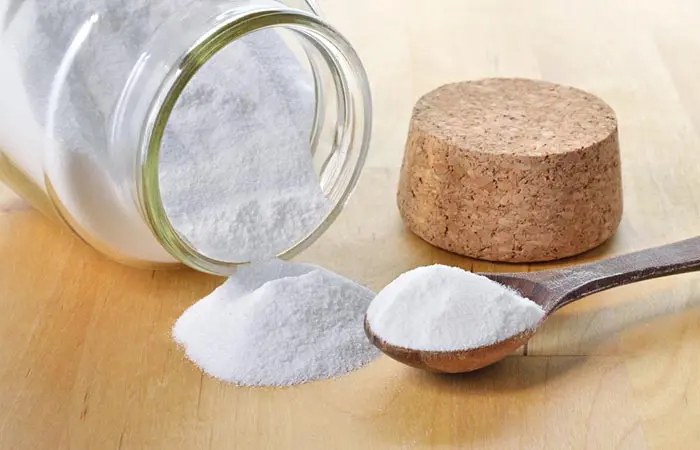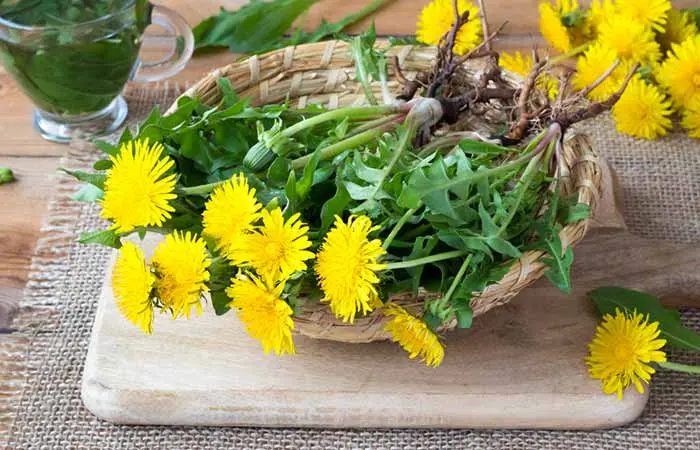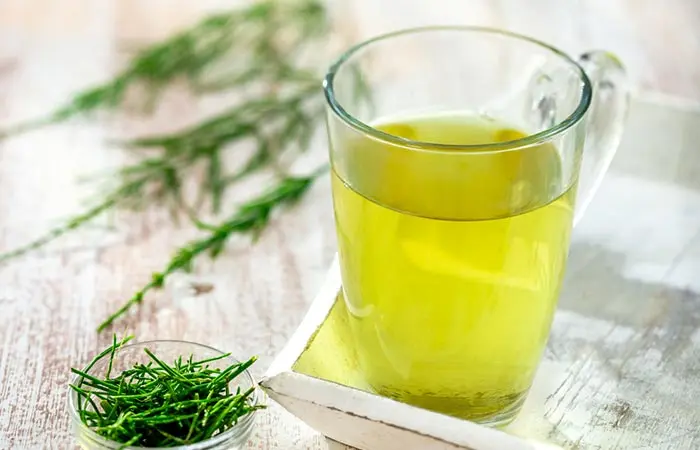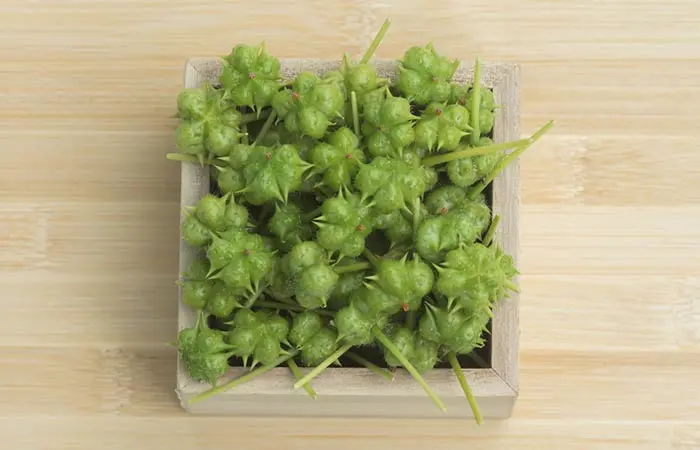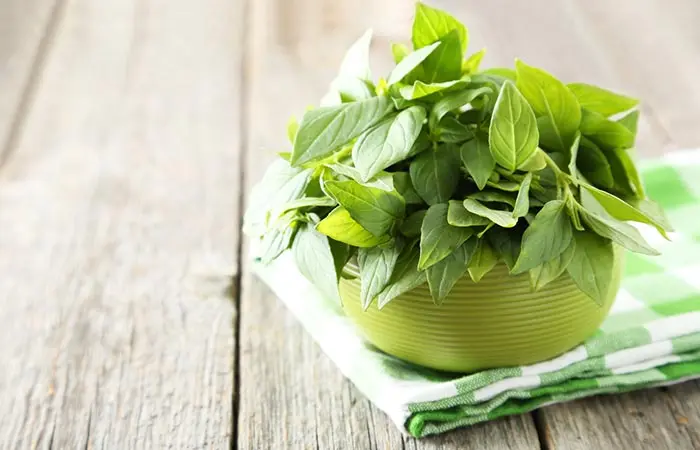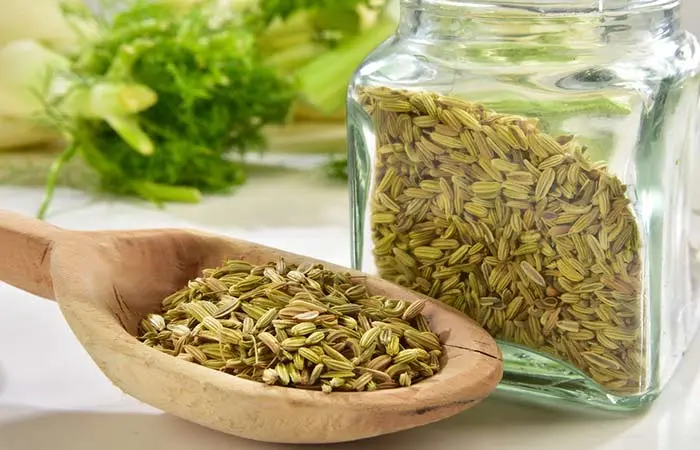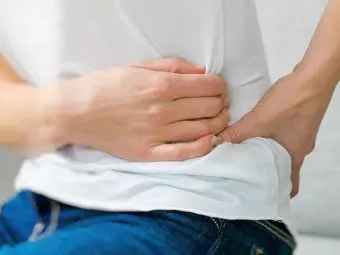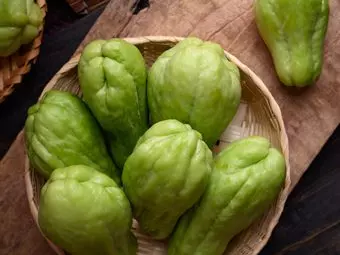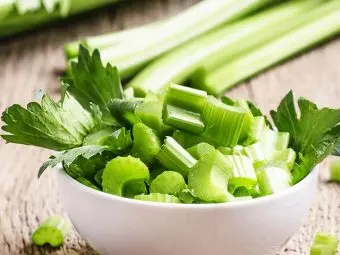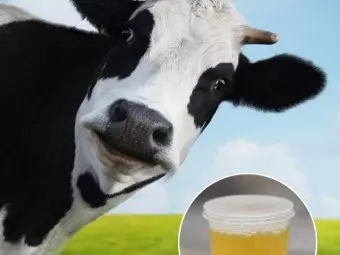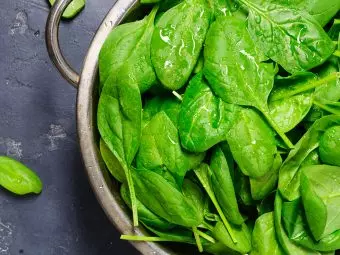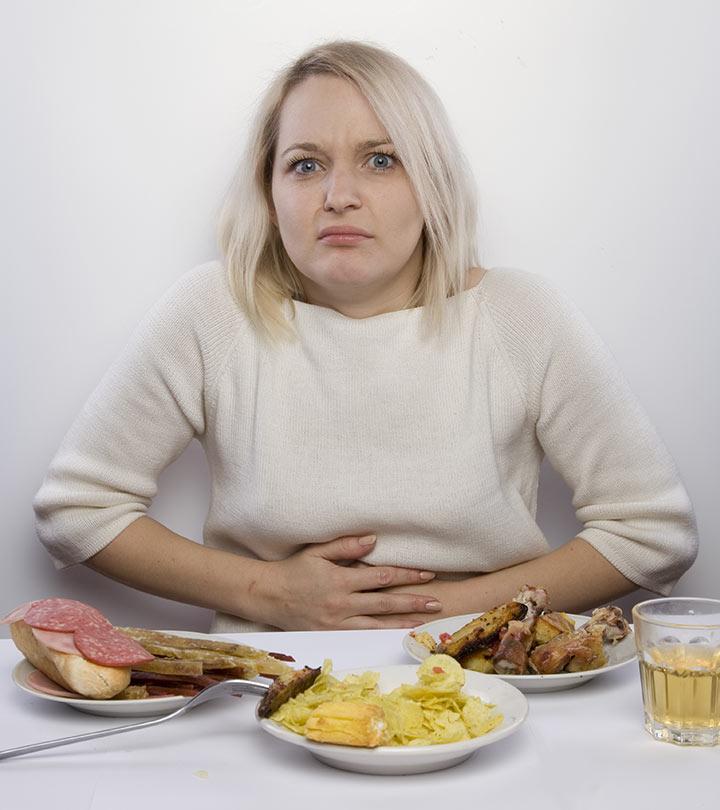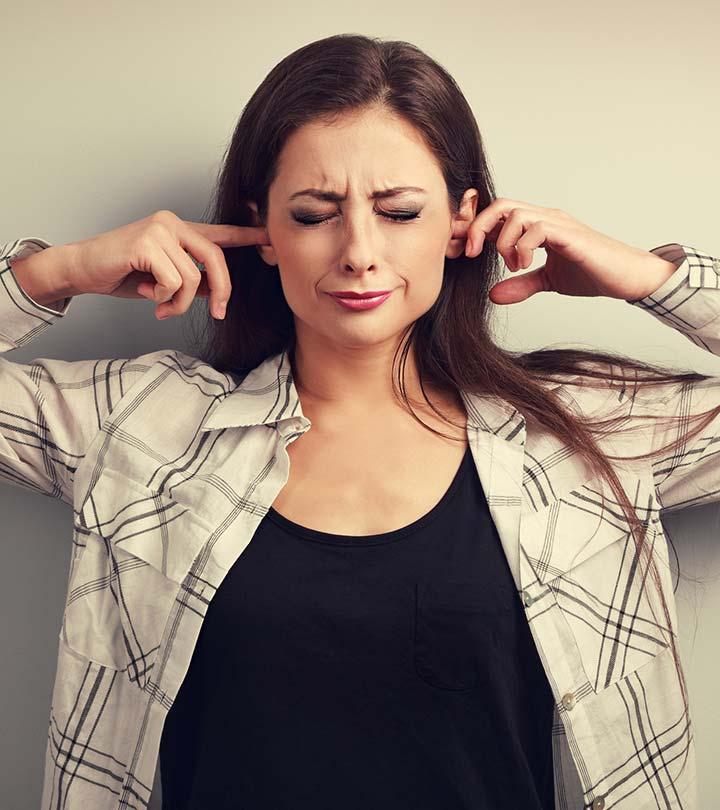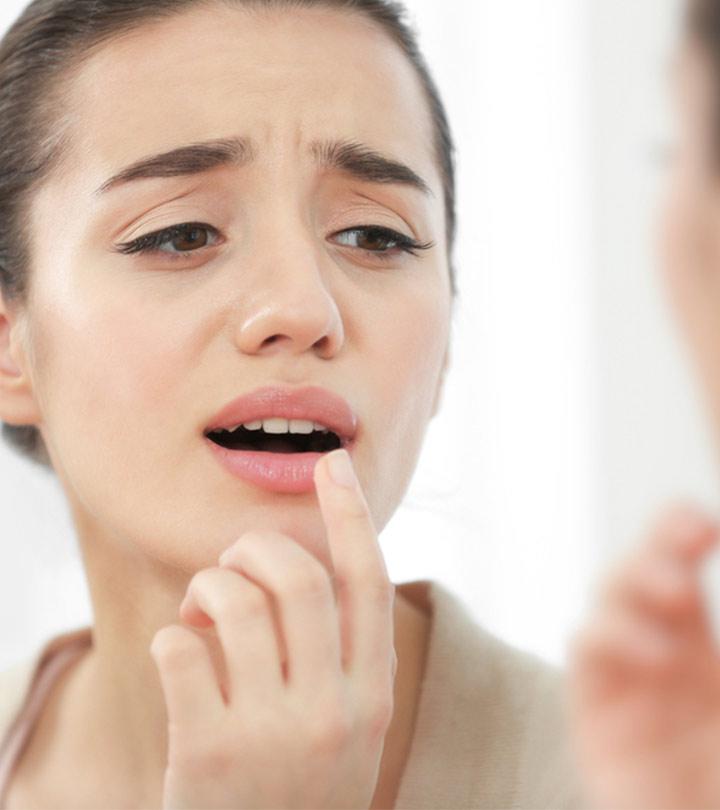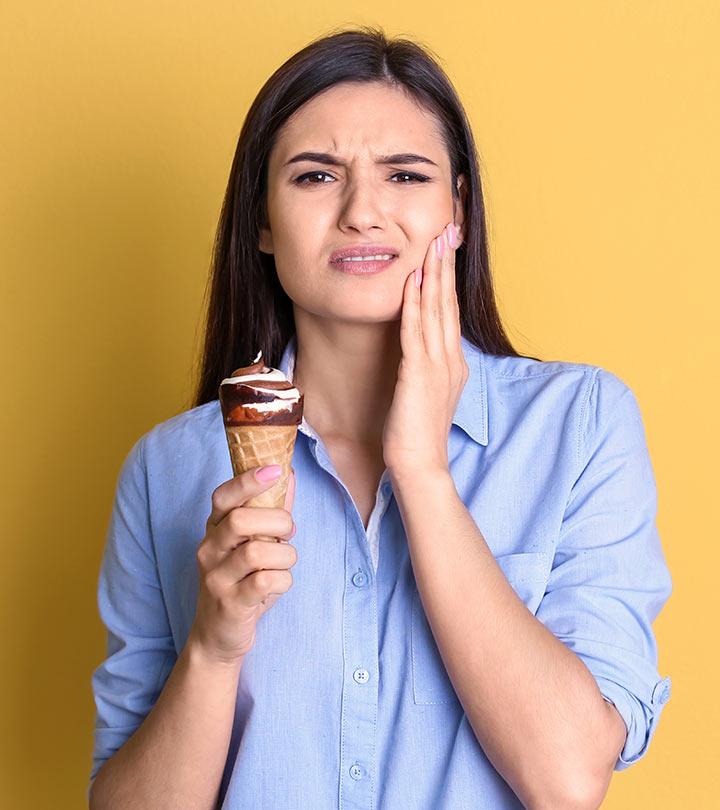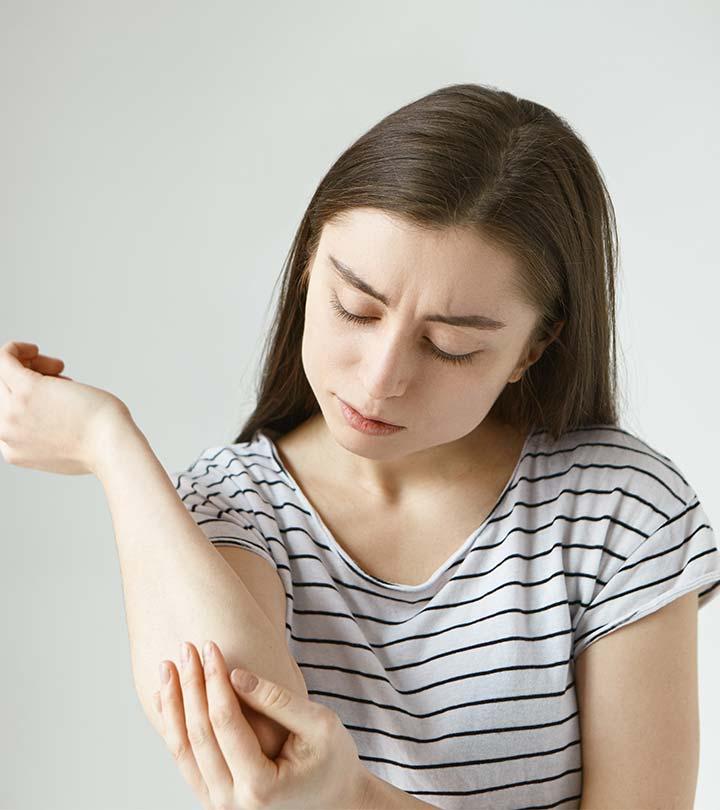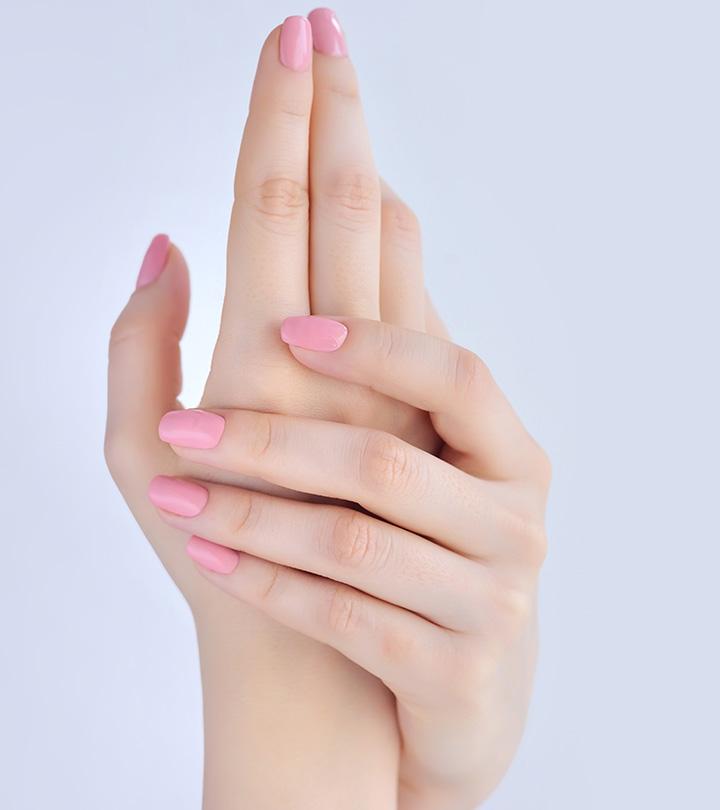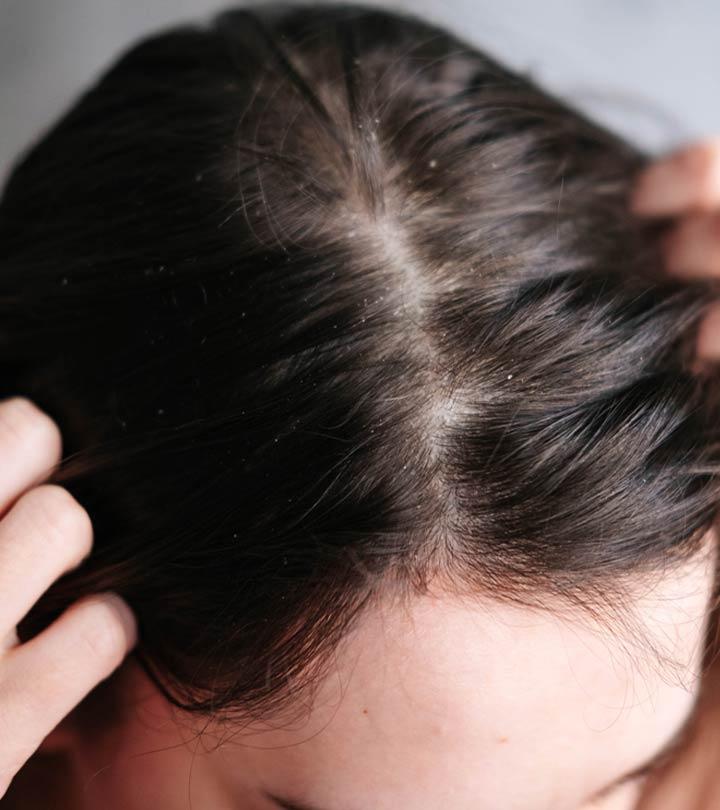Home Remedies For Kidney Stones – Here’s What Can Help
From consuming water to veggies, all you need to do to take care of your kidney.
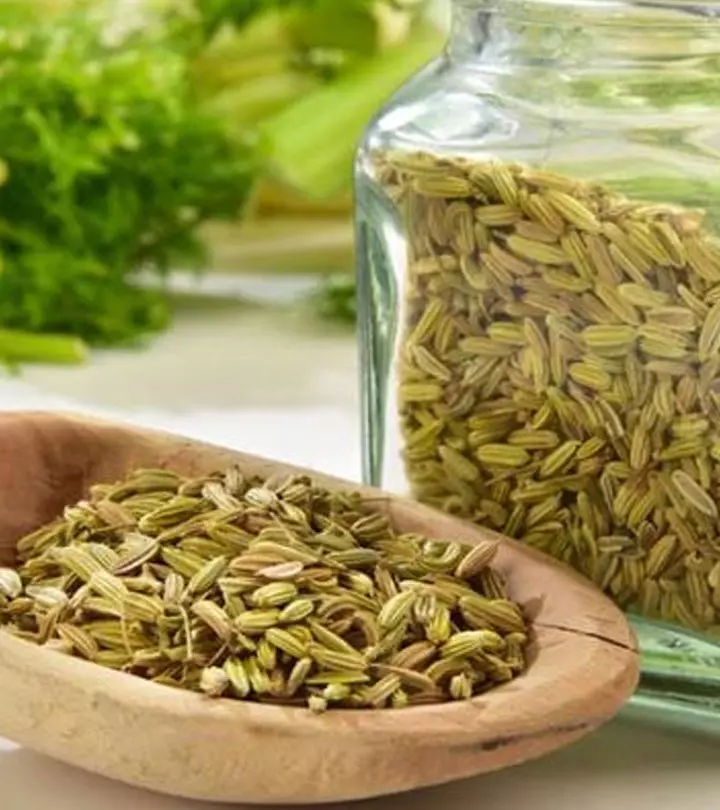
Image: ShutterStock
About 12% of the world’s population is affected by kidney stones at least once in their lifetime (1). While medical treatment is paramount, certain home remedies for kidney stones may help ease the symptoms.
The symptoms of kidney stones can be debilitating – apart from the excruciating pain, one may also have to deal with the urge to urinate every few minutes, a feeling of nausea or vomiting, or even bloody urine.
Proper diagnosis and the appropriate line of treatment are important to help resolve the issue. However, the natural remedies listed below might help you ease the pain and discomfort. Check them out and start following them after consulting with your health care provider.
 Trivia
TriviaIn This Article
What Are Kidney Stones?
Sometimes, our kidneys may contain small crystal-like solid masses. These are kidney stones, also known as renal calculi. They usually originate in the kidneys but can also develop along the urinary tract that includes the bladder, ureters, and urethra (1).
Let us now see how kidney stones are formed.
How Do They Form?
Kidney stones are caused by inadequate consumption of water. If you consume less than 8-10 glasses of water a day, you are putting yourself at risk of developing kidney stones. The less amount of water in your body cannot dilute uric acid, which, in turn, makes your urine more acidic. The increasing acidity of urine leads to the formation of stones(1).
If you have been diagnosed with or have a family history of medical conditions like Crohn's diseasei XA chronic bowel disease that causes inflammation in the digestive tract and leads to symptoms like diarrhea, fatigue, and stomach pain. , urinary tract infections, medullary sponge kidneyi XA congenital disorder characterized by small cysts in the tubes of the fetus’s kidney that occur during birth. , etc., you are likely to develop kidney stones (1).
Some people are more likely to develop kidney stones as compared to others.
Risk Factors
Kidney stones mostly occur in people aged between 20 and 50 years. Also, more men are at risk of developing kidney stones than women. Other risk factors include:
Data from the National Health and Nutrition Examination Survey (NHANES) conducted from 2015 to 2018 were analyzed to determine the prevalence and incidence of kidney stones. The study included 10,521 participants and the findings revealed that the prevalence of kidney stones among the study population was 11.0%. The 12-month incidence of kidney stones was estimated to be 2.1%, indicating that there were approximately 2,054 cases of kidney stones per 100,000 adults.
Kidney stones mostly occur in people aged between 20 and 50 years. Also, more men are at risk of developing kidney stones than women. Other risk factors include (1):
- Family history of kidney stones
- Inadequate consumption of water
- Obesity
- Consuming foods with high glucose, salt, and protein
- Inflammatory bowel diseasesi XA group of diseases that cause chronic inflammation in the tissues of the digestive tract, leading to abdominal pain.
Kidney stones require immediate medical attention. They require proper evaluation and treatment by a qualified healthcare provider. The use of the home remedies outlined below should be approached with caution and in consultation with a healthcare professional. In the next section, we will look at some home remedies that may treat its symptoms and reduce the risk of exacerbating the condition.
Home Remedies For Kidney Stones
1. Water
As we have mentioned earlier, inadequate consumption of water is a major cause of kidney stones. Drinking water can help retard the formation of crystals and flushes out calcium and phosphorus from the kidneys (2). Adequate hydration reduces the concentration of calcium and minerals in urine, thus reducing the chances of kidney stone formation.
You Will Need
10-12 glasses of water
What You Have To Do
Drink 10-12 glasses of water every day.
2. Tomato
Tomatoes are rich in bioactive compounds like citrates that may help treat kidney stones. They can significantly reduce and prevent the formation of stones in your kidneys (3).
You Will Need
- 2 tomatoes
- 1 teaspoon lemon juice
What You Have To Do
- Make a paste using one or two tomatoes and add a teaspoon of lemon juice to it.
- Drink it up.
How Often You Should Do This
Do this 1-2 times a week.
3. Lemon Juice
Lemon juice is a rich source of vitamin C and citric acid. Citrates are known to reduce the formation of crystals and reduce the supersaturation of urine by increasing its volume (4). A blogger shared the effects of drinking lemonade every few hours on her husband, who was grappling with severe kidney stones. Amazed by the results, she said, “Not only has this remedy worked for my husband several times, but it’s worked for another family member, also (i).”
You Will Need
- 2-3 cups of water
- 1 tablespoon of lemon juice
- 1 tablespoon of olive oil
What You Have To Do
- Add a tablespoon each of lemon juice and olive oil to water.
- Mix it well and drink it throughout the day.
How Often You Should Do This
Repeat this remedy several times a day for 3-4 weeks.
4. Radish Juice
Studies show that consumption of radish juice increases the excretion of calcium oxalates in your urine. It may also help flush out any crystals that may be building up in your kidneys (5).
You Will Need
1-2 radishes
What You Have To Do
- Take a radish or two and blend to extract the juice.
- Have 100 mL of this juice every morning on an empty stomach.
How Often You Should Do This
Do this for 1-2 weeks.
5. Baking Soda
Baking soda can be used to treat kidney stones (6). It is effective in flushing out the crystals in your kidneys and possibly releasing the stones.
You Will Need
- 1-2 tablespoons of baking soda
- A glass of warm water
What You Have To Do
Add a tablespoon of baking soda to a glass of warm water and consume immediately.
How Often You Should Do This
Do this 2-3 times a day.
6. Dandelion Root
Dandelion root has bioactive compounds that can help in increasing the volume of urine and preventing the formation of crystals in your kidneys (7).
You Will Need
- 1 teaspoon of dandelion root
- A glass of warm water
What You Have To Do
- Steep a teaspoon of dandelion root in boiling water for 10 minutes.
- Strain and drink the decoction.
How Often You Should Do This
Have this decoction 2-3 times a day.
Note: Make sure you consult your doctor before having dandelion root as it can interact with medications.
7. Horsetail Juice
Horsetail juice exhibits diuretic activity, which means that it can help increase the volume of urine (8). It can also increase the glomerular filtration ratei XMeasures the filtration rate at which blood is filtered by glomerulus in the kidneys and determines its level of proper functioning. .
You Will Need
- 2-3 teaspoons of horsetail leaves
- 1 glass of warm water
What You Have To Do
- Steep two to three teaspoons of horsetail herb in boiling water for about 15 minutes.
- Strain and drink the decoction.
How Often You Should Do This
Do this 2-3 times a day.
Caution: Do not try this remedy if you have diabetes, low potassium or thiamine levels, or are on lithium or heart medications. Consult your doctor.
8. Tribulus Terrestris
Studies show that tribulus terrestris can flush out calcium oxalate crystals formed in the kidneys (9). It also has a significant diuretic effect.
You Will Need
1 teaspoon of extracts of Tribulus terrestris
What You Have To Do
- Steep a teaspoon of the extracts of tribulus terrestris in boiling water.
- Strain and consume the decoction.
How Often You Should Do This
Consume this 2-3 times a day until the stones pass in your urine.
9. Basil Leaf
Basil leaves are one of the most common herbs used in traditional medicine and Ayurveda. They have a diuretic effect, which means that they can increase the volume of urine and facilitate the elimination of kidney stones (10). Tea prepared with turmeric, ginger, or nettle leaf also shows an antagonistic effect over kidney stones, mainly due to the presence of flavonoids, anthocyanins, and saponins (11).
You Will Need
- A handful of basil leaves
- A cup of boiling water
- 1 teaspoon of honey (optional)
What You Have To Do
- Take a handful of basil leaves and let it steep in a cup of boiling water.
- Strain and consume the decoction.
- You can add a teaspoon of honey if needed.
How Often You Should Do This
Consume this 2-3 times a day.
10. Fennel
Fennel seeds are rich in several bioactive compounds that may possibly help treat kidney stones. Studies suggest that fennel seeds also can boost kidney function (12). Some also believe that they can aid in breaking down the crystal formation in your kidneys and allow them to be flushed out in your urine. However, more research is needed to support these claims.
You Will Need
- 1 teaspoon of fennel seed powder
- A cup of boiling water
What You Have To Do
- Add a teaspoon of fennel seed powder to a cup of boiling water.
- Mix well and consume after it has cooled down.
How Often You Should Do This
Consume this once a day for a couple of weeks.
Alternative therapy for kidney stones also includes physical solutions like acupuncture, massage, and exercise. Yoga asanas like padahasthasana, paschimottanasana, and dhanurasana give a whole-body massage that stimulates the digestive organs and improves kidney health.
Note: Effective kidney stone treatment is only possible under medical intervention. Thus, do not use these home remedies as an alternative to prescribed medication. Focus on the advice and treatment provided by qualified healthcare professionals when dealing with kidney stones.
While these simple home remedies may reduce the risk of kidney stones or help manage the symptoms, over-the-counter (OTC) pain relievers can provide effective temporary relief should the pain aggravate. Home remedies may help manage discomfort, but do not treat the condition itself. Consult your healthcare provider to understand if these remedies interact with your medications. If the condition persists, let your doctor know.
When Should I See A Doctor?
Sometimes, this condition can persist longer than it should and can cause a lot of pain. In such cases, you must consult your doctor. If the stones get stuck in the urinary tract, it can cause acute pain, and you must be taken in for surgery immediately.
Other symptoms that warrant a doctor’s consultation include:
- Vomiting
- Blood in urine
- Cloudy urine
- Fatigue
- Loss of consciousness
- Lower abdominal and genital pain that lasts for more than four weeks
 Fun Fact
Fun FactMaking simple lifestyle changes may even help prevent kidney stones. Learn more in the next section.
How To Prevent Kidney Stones?
- Drink Enough Water: Aim to consume at least 8 to 10 glasses of water daily. This can help prevent stone formation that could be caused by the crystallization of certain minerals in the body (13), (14).
- Limit Your Salt Intake: High sodium levels may lead to calcium buildup in the kidneys (15), (16). Limit your salt consumption and be cautious of processed and fast foods.
- Consume A Balanced Diet: Plan a diet rich in fruits and vegetables that provide essential nutrients and reduce the risk of stone formation (17).
- Limit Animal Protein: Excess intake of animal protein can increase the levels of uric acid and calcium in the body and lead to stone formation (18).
- Manage Weight: Obesity may increase the risk of kidney stones (19). Maintain a healthy weight through the right diet and regular exercise.
Infographic: Ingredients That Help Ease Kidney Stone Symptoms At Home
You can significantly reduce the risk of kidney stones by adding a few ingredients to your diet. In the infographic below, we have listed a few remedies that use such ingredients. These, when taken alongside your regular treatment upon your doctor’s approval, may ease the painful symptoms associated with kidney stones. Scroll down for more information!

Illustration: StyleCraze Design Team
Kidney stones are small crystal-like masses that may originate in the kidney and be present along the urinary tract. Inadequate water intake is one of the primary causes of kidney stone formation. The condition can be extremely painful and requires prompt medical assistance and a proper line of treatment. You may also apply some home remedies to alleviate the pain and discomfort after consultation with your healthcare provider. Drinking lots of water and incorporating tomatoes, lemon juice, radish juice, fennel, and basil leaves into your diet may help prevent or flush out kidney stones. Magnesium-rich foods like parsley or the administration of magnesium supplements can aid smooth muscle relaxation thus relieving bladder discomfort (20). If you experience vomiting, cloudy or bloody urine, or loss of consciousness, you should contact a medical professional immediately.
Frequently Asked Questions
Is hot water good for kidney stones?
Yes. Drinking warm water every day in the morning may flush out kidney toxins. However, limited data is available to prove this claim.
Does a heating pad help kidney stones?
Yes. A heating pad or warm bath may provide relief from the intensity of pain associated with kidney stones. However, you should take over-the-counter medication for kidney stones until the stone passes.
How do I know if my kidney stone is moving?
You may experience pain as the kidney stone moves along the urinary tract. In addition, you will urinate often.
Key Takeaways
- Underlying medical conditions, obesity, and inadequate water consumption may cause kidney stones.
- You can treat kidney stones by consuming 10 to 12 glasses of water daily.
- Tomato and lemon juice contain citrates, which may help in treating kidney stones.
- Baking soda may help in flushing out the crystals in your kidneys.
Learn how to manage kidney stones with a simple diet. Get tips on how to naturally reduce pain and discomfort by clicking on the video below.
Personal Experience: Source
StyleCraze's articles are interwoven with authentic personal narratives that provide depth and resonance to our content. Below are the sources of the personal accounts referenced in this article.
i. Kidney Stones – Home Remedyhttps://foothillsofthegreatsmokymountains.blogspot.com/2013/06/kidney-stones-home-remedy.html
References
Articles on StyleCraze are backed by verified information from peer-reviewed and academic research papers, reputed organizations, research institutions, and medical associations to ensure accuracy and relevance. Read our editorial policy to learn more.
- Kidney Stone Disease: An Update on Current Concepts, Advances in Urology, US National Library of Medicine, National Institutes of Health.
https://www.ncbi.nlm.nih.gov/pmc/articles/PMC5817324/ - Effects of small molecules water that may retard kidney stone formation. International Urology and Nephrology, US National Library of Medicine, National Institutes of Health.
https://www.ncbi.nlm.nih.gov/pubmed/29236240 - Can tomato juice be used for prophylaxis in recurrent stone formers? Indian Journal of Urology, US National Library of Medicine, National Institutes of Health.
https://www.ncbi.nlm.nih.gov/pmc/articles/PMC2684307/ - Medical and Dietary Therapy for Kidney Stone Prevention, Korean Journal of Urology, US National Library of Medicine, National Institutes of Health.
https://www.ncbi.nlm.nih.gov/pmc/articles/PMC4265710/ - Influence of radish consumption on urinary calcium oxalate excretion. Nepal Medical College Journal, US National Library of Medicine, National Institutes of Health.
https://www.ncbi.nlm.nih.gov/pubmed/15449653 - KIDNEY STONES: AN UPDATE ON CURRENT PHARMACOLOGICAL MANAGEMENT AND FUTURE DIRECTIONS, Expert Opinion on Pharmacotherapy, US National Library of Medicine, National Institutes of Health.
https://www.ncbi.nlm.nih.gov/pmc/articles/PMC3772648/ - Inhibitory effects of taraxasterol and aqueous extract of Taraxacum officinale on calcium oxalate crystallization: in vitro study, Renal Failure, US National Library of Medicine, National Institutes of Health.
https://www.ncbi.nlm.nih.gov/pmc/articles/PMC6014465/ - Effects of EquisetumarvensePlant Extracts on the Kidney Stones and its Diuretic Action, Cell and Molecular Biology.
https://www.semanticscholar.org/paper/Effects-of-Equisetumarvense-Plant-Extracts-on-the-Turker/7d6aa3c5739f7d84fa08fab6ea2f6c7b9de236d2?p2df - Tribulus terrestris: preliminary study of its diuretic and contractile effects and comparison with Zea mays. Journal of Ethnopharmacology, US National Library of Medicine, National Institutes of Health.
https://www.ncbi.nlm.nih.gov/pubmed/12639749/ - Pathophysiology of kidney, gallbladder and urinary stones treatment with herbal and allopathic medicine: A review, APJTD, US National Library of Medicine, National Institutes of Health.
https://www.ncbi.nlm.nih.gov/pmc/articles/PMC4027340/ - Dietary Plants for the Prevention and Management of Kidney Stones: Preclinical and Clinical Evidence and Molecular Mechanisms
https://www.ncbi.nlm.nih.gov/pmc/articles/PMC5877626/ - Effect of the aqueous extract of Foeniculum vulgare (fennel) on the kidney in experimental PCOS female rats, Avicenna Journal of Phytomedicine, US National Library of Medicine, National Institutes of Health.
https://www.ncbi.nlm.nih.gov/pmc/articles/PMC4103710/ - Water for preventing urinary stones
https://www.ncbi.nlm.nih.gov/pmc/articles/PMC7012319/ - The role of fluid intake in the prevention of kidney stone disease: A systematic review over the last two decades
https://www.ncbi.nlm.nih.gov/pmc/articles/PMC7731957/ - Sodium Intake and Chronic Kidney Disease
https://www.ncbi.nlm.nih.gov/pmc/articles/PMC7369961/ - Effects of high-sodium diet on lithogenesis in a rat experimental model of calcium oxalate stones
https://www.ncbi.nlm.nih.gov/pmc/articles/PMC7947444/ - Risk of Kidney Stones: Influence of Dietary Factors Dietary Patterns and Vegetarian–Vegan Diets
ttps://www.ncbi.nlm.nih.gov/pmc/articles/PMC7146511/ - Adverse Effects Associated with Protein Intake above the Recommended Dietary Allowance for Adults
https://www.ncbi.nlm.nih.gov/pmc/articles/PMC4045293/ - Obesity and Its Impact on Kidney Stone Formation
https://www.ncbi.nlm.nih.gov/pmc/articles/PMC7265184/ - Magnesium and Bladder Discomfort after Transurethral Resection of Bladder Tumor: A Randomized, Double-blind, Placebo-controlled Study
https://pubs.asahq.org/anesthesiology/article/133/1/64/109148/Magnesium-and-Bladder-Discomfort-after






